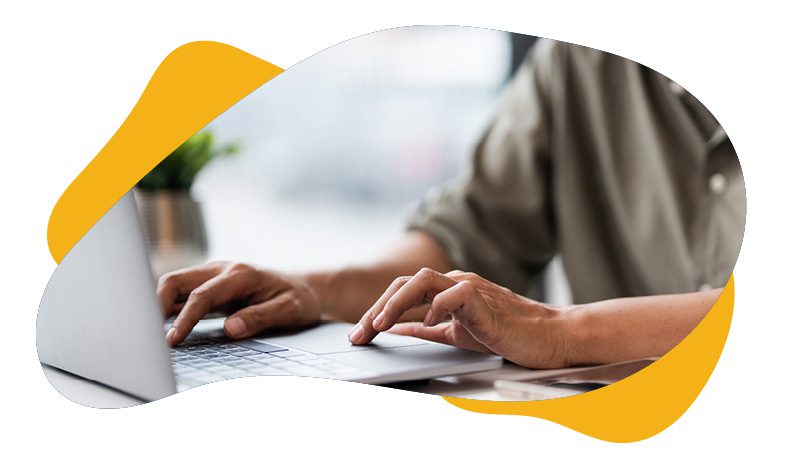Business Matters – Issue 34
Three key changes for business owners | Time for a shake up? | Personal allowances you shouldnt miss | Spotlight on ISAs | Break the habit
We hope you like the new look and format of Business Matters – please spare 1 minute to let us know what you think. Take survey >
Tax year-end: Take the deadline in your stride
Financial planning is a marathon, not a sprint – but the end of the tax year can be a helpful short-term goal to aim towards. Seize the moment and take the time to reassess your tax affairs to ensure you’re making the most of your allowances.

Tax year-end is a valuable opportunity to leverage available tax reliefs, allowances and incentives – but it can bring its own unique challenges for small-business owners. Understanding what your company needs to do at this crucial time can help you comfortably sail over the finish line, arriving well-prepared for the next tax year.
Taking a strategic approach can result in significant cost savings and improved cash flow, which is especially important if you’re considering making significant changes to your business in the short term. And, on a personal level, while many of us are still being careful with our budgets, the last thing you want to do is pay any more tax than you have to on anything you save or earn.
Below are the three key things business owners need to think about. You can also download your tax year-end checklist for personal finances here:

Three key changes for business owners
- Corporation Tax
One of the biggest changes for many incorporated businesses in the next few years is an increase in the rate of Corporation Tax. From April 2023, the rate increased from 19% to 25% on profits of more than £250,000. Companies with profits below £50,000 will pay 19%, while those with profits between £50,000 and £250,000 will pay a tapered rate up to the full 25%.
Getting your company pension contributions in shape
Did you know that company pension contributions can help minimise your Corporation Tax liability? Employer contributions are taken from your business’s pre-tax earnings, so they can be a tax-efficient way to extract value from the company. Remember that company pension contributions are relieved in accordance with the accounting year in which they are paid – not the tax year.
- Dividends
If you own a business and take dividend income instead of a salary, it’s important to remember that the government is changing the rules on Dividend Tax in 2024/25. Dividend Tax is charged on anything you earn from company shares, including dividends from money held in collective investments such as funds and investment trusts. Your current Dividend Tax allowance is £1,000, so some of the money you earn from company dividends is tax-free. But from 5th April 2024, that allowance will halve to £500. If you’re a higher-rate taxpayer, you’ll pay 33.75% Dividend Tax, and it’s 39.35% for additional-rate taxpayers.
- Don’t forget the delay in making tax digital
Many entrepreneurs will be breathing a sigh of relief that the MTD ITSA – the latest stage of the government’s plan to digitalise the tax system – has been delayed to April 2026. This stage will affect certain sole traders and landlords – and will mean you have to digitalise books and records and report them quarterly to HMRC, with a final end-of-year submission.
Although the delay will be welcome news, if you get into the habit of keeping your paperwork up to date now, you’ll make life much easier come the time to transition to MTD ITSA. You can use the HMRC app to organise your paperwork – it’s a useful resource for getting your papers in order and finding the correct tax codes and other official information.
The levels and bases of taxation and reliefs from taxation can change at any time and are dependent on individual circumstances.

Time for a shake-up?
As we navigate another challenging year, businesses need robust, agile long-term plans to help them thrive. So, could this be the right time to revise your three-year plan?
It’s possible to make short-term changes to address some of the challenges facing your business, such as higher interest rates and wages. But if these actions are not part of a formal, documented long-term plan, they could lead to unintended consequences.
There are various aspects that SME owners could review to improve their financial resilience, including:
Some of the most common changes among SMEs currently include:
- Reviewing capital structures
- Analysing costs
- Driving operational efficiencies
- Looking for growth opportunities
What’s more, it’s important to be clear about what’s important to you and your business – know what your goals are and why you want to achieve them. A bit like reaching milestones during a run, each step brings you closer to financial success.

Personal allowances you shouldn’t miss
As well as ensuring your business taxes are in good form before 5th April, it’s important to ensure your personal investment strategy is still working hard for you. To help you stay on top of your finances this spring, we’ve created a tax year-end checklist:
It’s always a good idea to take advantage of your annual tax reliefs and allowances wherever you can. While the Spring Budget is unlikely to rock the boat ahead of the upcoming election, your tax allowances are almost always a case of ‘use it or lose it’, so it’s worth acting before 5th April.
Making tax-smart decisions in good time can make a real difference to the pension pot you have when you retire. What’s more, saving for retirement is also an exceptionally tax-efficient way to draw profits from your business.
Beat the 60% tax trap
For earners of £100,000 or more, the rate of Income Tax you pay will be affected by the gradual removal of the £12,570 personal allowance. It’s currently tapered away at a rate of £1 for every £2 you earn above £100,000.
In real terms, this means that for every £100 of income between £100,000 and £125,140, you only get to take £40 home. £40 is deducted in Income Tax, while another £20 is lost by the tapering of the personal allowance. This amounts to a 60% tax rate – often referred to as the ‘60% tax trap’. So what can you do to sidestep or mitigate this trap, ahead of 5th April? Read more here.



